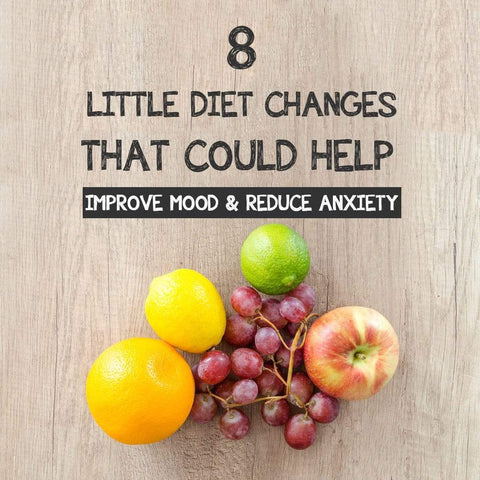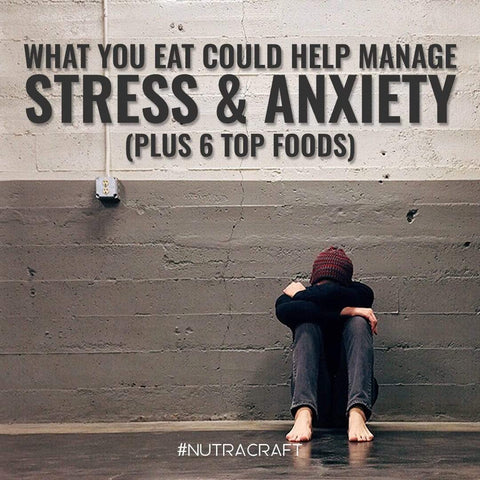
Chronic stress is one of the worst things for your health.
The chronic agitation, the burdensome worries, the tension, and sleepless nights take a toll not only on our quality of life but also on our physical health.
The physical effects of stress are not pretty.
Researchers have said that stress is considered a “causal agent” or one thing that can contribute to the development of degenerative diseases like cardiovascular disease, diabetes mellitus, arthritis, and Alzheimer's 1. Besides degenerative diseases, stress is thought to contribute to all illnesses.
How can stress be connected with so many diseases? Because it causes damage to all the cells and organs throughout your body. Along with the rise of stress hormones comes increased oxidative stress and increased blood sugar levels, both of which damage your body 2.
Are You Stressed?

Depending on how aware you are of how you feel, you may or may not notice stress in your life.
To some people, stress is obvious because the unpleasantness that it causes whacks them in the face.
But others might not notice the tension that subtly invades their day-to-day life. Maybe stress has become so pervasive in your life that you don’t even notice it anymore.
In that case, it’s time to check in with your body and see whether stress has become a burden on your health - and take steps to stop it before it causes more health issues!
Signs That You’re Chronically Stressed
If you notice that you’re experiencing some of these stress signs, then you can be sure that stress is taking a toll on your health. Here are 8 signs:
Exclusive Bonus! Download the FREE report ‘How To Naturally Reduce Stress & Anxiety In 3 Simple Steps’ by clicking here.
1. Your Mood Is Often Low
Stress is one of the main contributors to poor mood. If you’re feeling low, cutting stress out of your life can help lift your spirits.
When you’re stressed for a long time, your stress hormones get elevated. And when stress hormones such as cortisol are too high for too long, they can make your brain less receptive to feel-good neurotransmitters like serotonin and dopamine and can cause your brain cells to die 3!
2. You Can’t Sit Still
If you can’t sit still at any point of the day and just relax, it’s a sign that your nervous system is overactivated.
Having plenty of energy for exercise and work is healthy, but if you can’t ever relax, you’re on overdrive. People with restless leg syndrome have a higher number of stress-related disorders like anxiety and depression [4].
3. You Have Skin Issues/More Wrinkles

If your skin is looking less vibrant, you have a skin disorder like dermatitis or psoriasis, or you are developing wrinkles at a fast rate, it’s a good sign you’re stressed.
Psychological stress triggers excessive inflammation which damages your skin, causing aging, and even triggering unsightly skin disorders 5. Stress also prevents the synthesis of the things in your skin that make it look plump and youthful6.
4. You Have Poor Digestion
Your gut has its own nervous system which has been called the “second brain” of the body.
Know the feeling of getting “butterflies” in your gut when you're nervous? That's your gut’s nervous system reacting to stress. And when your gut is stressed out, you can't digest your food well and may even get acid reflux.
5. You Get Headaches Often

Stress contributes to headaches by causing changes in blood vessels and muscles near your head. One of the most common triggers of headaches, specifically tension headaches and migraines, is stress 7.
If you regularly get headaches, stress is most likely contributing.
6. You Get Sick Often
Amazingly, your immune system responds to your emotions. If you are calm and confident, you’re setting up your immune system to be balanced and to function well.
But chronic stress does two things. First, it suppresses the immune system. Second, it causes your immune system to act errantly, which is then more likely to attack your own body 8.
7. You Have Trouble Sleeping
Stress certainly can keep you from getting a good night’s sleep. It can keep your mind active and worrying, and cause your adrenals to pump out stress hormones that don’t let you calm down 9. With stress, your “on” switch doesn’t shut off when it’s supposed to.
8. You Have Back Pain, Neck Pain, Or Other Muscle Pain

Stress causes you to tense up. Stress hormones send signals to your muscles to contract so that they can be ready for action - ready to fight threats. But most of the time in the modern world, those threats only exist in our heads.
When you’re too tense, you may develop neck, shoulder, or back pain, as studies have shown 10,11.
Dealing with Unpredictable Mood Swings, High Anxiety, or Stress?
You don’t have to resort to questionable antipsychotic prescription drugs to find relief.
You can help calm your body naturally by following some simple lifestyle changes, eating the right kinds of foods, and taking natural remedies.
What Are They?
Nutritionist Evan Burns has created a FREE report that reveals an easy-to-follow three-step process that helps reduce stress, calming anxiety and eliminating mood swings and irritability.









